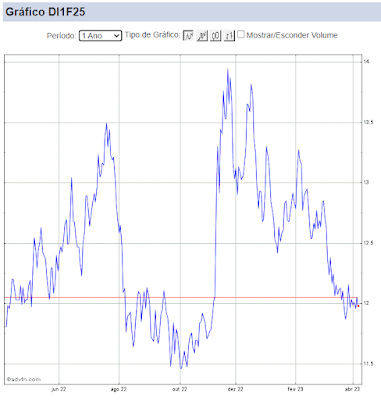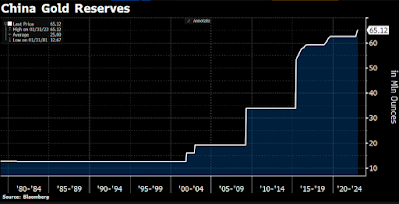"Christmas rally has started" (From Morgan Stanley)
Os ativos de risco apresentaram
ontem um movimento clássico e coordenado de “Risk-On”. Os movimentos, com menor
magnitude, mas na mesma direção, persistem nesta manhã. Destaque para a alta de
quase 2% no Petróleo neste momento. O Morgan Stanley resumiu de maneira muito
ponderada o cenário de curto-prazo:
Christmas rally has
started. After a six day winning
streak, the MSCI EM equity index has hit its highest level since March with
most of the increase seen in AxJ benefiting from its tech exposure. The Hang
Seng has breached 30K hitting its highest level for a decade, causing our
equity strategists to look for even more gains to come.
Global liquidity remains
ample suggesting that only a
minor shift of the news flow towards constructiveness was required to push
risky assets up once again. Despite China’s deleveraging strategy, it is
important to emphasize that the 7-month increase in the PBoC's balance sheet
through end of October was the fastest acceleration in years. Those looking at
US yield curve flatness as a potential bearish risk factor may be reminded that
during the last 30 years, it has taken at least a year after the initial
inversion before the recession set in. The economy actually kept growing as the
curve narrowed.
A present from the
Fed. The performance of the USD
and the risk outlook remain negatively correlated which is a typical finding
for a funding currency. Outgoing Fed Chair Yellen underlined the Fed stands
ready to increase rates gradually citing dangers of inflation staying too low
leading towards a damaging downside adjustment of long-term inflation
expectations. Interestingly, 5Y/5Y breakeven inflation has declined by 14bps
from its late October high now reaching levels last seen in July. Neither
higher commodity prices nor China’s upside inflation surprises helped US
inflation expectations, underlining the dominance of US wages and the perceived
slope of its Phillips curve driving US inflation expectations.
Low wages = high
assets. Yellen's warning about the
dangers of subdued inflation suggests that monetary authorities may aim for lower
real rates and yields to push US capital expenditure growth, labor market
tightness and ultimately wages. In addition, the de-risking of China’s
corporate balance sheets does require the assistance of strong global economic
growth which can be best granted with the US staying accommodative and the USD
offered. This 'goldilocks scenario' has received a strong ‘go ahead’ by the
content of the Fed Chair’s remarks. For us to turn bearish on assets we need to
see either the emergence of higher US wage inflation or the Fed turning for
other reasons towards a more hawkish reaction function. Meanwhile, we underline
our bullish EM call. When DM real yield levels fall, EM assets look
increasingly attractive
No Brasil, os jornais continuam dando
enfoque a Reforma da Previdência. Segundo a mídia, ainda há resistência ao
texto apresentado e ainda não há votos suficientes para a aprovação. A “Reforma”
poderia ser ainda mais enxuta do que o previsto anteriormente. Acredito que
estes ruídos sejam naturais, que uma reforma branda seja o cenário mais
provável, mas que o texto ainda demanda articulação política para angariar os
votos necessários. Este tipo de ruído faz parte do processo político e é
natural que um jogo de demandas seja feito em busca de cargos e orçamento antes
que os votos necessários sejam angariados. Tenho pouca sensibilidade, neste
momento, para ter convicção na real probabilidade de aprovação da Reforma da
Previdência, mas vejo um esforço e uma articulação grande por parte do Governo
que, no passado, sempre levou a resultados positivos.


Comentários
Postar um comentário